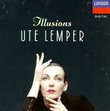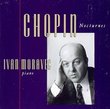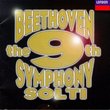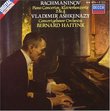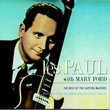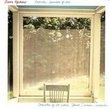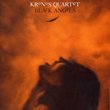| All Artists: Charles Mingus Title: Great Concert of Charles Mingus Members Wishing: 3 Total Copies: 0 Label: Verve Release Date: 7/20/2004 Genres: Jazz, Special Interest, Pop Styles: Avant Garde & Free Jazz, Modern Postbebop, Bebop Number of Discs: 2 SwapaCD Credits: 2 UPCs: 602498069134, 0602498069134 |
Search - Charles Mingus :: Great Concert of Charles Mingus
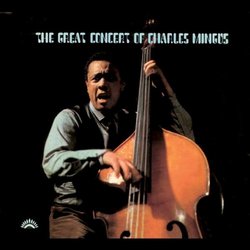 | Charles Mingus Great Concert of Charles Mingus Genres: Jazz, Special Interest, Pop
Recorded "live" in 1964 at the Thibtre des Champs-Ilysie, Paris this 2 CD set, which features Eric Dolphy, is bolstered by two previously unreleased tracks. This is essential Mingus and essential to any jazz collection. |
Larger Image |
CD DetailsSynopsis
Album Description Recorded "live" in 1964 at the Thibtre des Champs-Ilysie, Paris this 2 CD set, which features Eric Dolphy, is bolstered by two previously unreleased tracks. This is essential Mingus and essential to any jazz collection. Similarly Requested CDs
|
CD ReviewsI Know This Is Kinda Tacky.... greg taylor | Portland, Oregon United States | 08/09/2004 (5 out of 5 stars) "...but I cannot let the review below stand alone on this page for the reissue of this great great CD. What follows is the review I wrote for this CD along time ago which is on an out-of-date listing for this album on Amazon. I think you can get some of my feeling for this CD by the original title. One Of The Greatest Live Recordings of All Time. I know that title sounds like hypebole. But once you know this album, you cannot help but wish you had been in the audience. I challenge anyone to listen to James Brown at the Apollo, B.B. King at the Regal, the Allman Brothers at the Fillmore, or this album and not feel the same way. Mingus fans know that there are many pirate recordings of this 1964 European tour. This was the official Columbia release and it beats all others that I have heard not only in the quality of sound but in the performances. These guys were totally on their game when this was recorded. What a band. Eric Dolphy playing the alto sax, bass clarinet and flute, Clifford Jordan on the tenor, Jaki Byard on piano and Mingus' great soulmate, Dannie Richmond on the drums. Johnny Coles was on the tour but he only plays on one of the songs due to illness. There are only six tunes on these two discs. More than two hours of music of extraordinary strength. Mingus fans will know that he was well versed in classical music as well as jazz. This group somehow combines the best of a jazz combo with the best of a chamber group. There is superb ensemble and individual playing of some of the greatest music ever written by an American composer. There are astounding solos. Jaki Byard had the entire history of the piano deeply engrained in his soul and that knowledge could flow out of his fingers in one solo. Eric Dolphy is one of the unique voices in music, instantly recognizable yet tremendously influential. Clifford Jordan is, for my money, the most underrated tenor player of all time. The guy has such a soulful sound, was technically superb, took great pride in his ensemble work and was a wonderful soloist. If you ever find his In The World CD buy it. Danny is great-alway there, sounding powerful and understated at the same time. The heart of the band was, of course, Mingus. If you ever saw him live you will know what I mean. Shouting out encouragement, challenging everybody and anything complacent, pouring out his heart through that great bass of his. This is great great music. Music like this exhausts my vocabulary. This disc like Kind of Blue, like Monk and Trane playing together belongs in every collection of modern jazz." Meets and Even Exceeds the Promise of the Title M. Allen Greenbaum | California | 05/20/2005 (5 out of 5 stars) "This is a must for Mingus fans, and for anyone who enjoys the more experimental jazz sounds of the early 60's. Although there are some fairly challenging numbers, others are more accessible to the newcomer. It's probably his best live CD (rivaled only by "Live at Antibes); the introductions by Mingus, the enthusiastic, respectful audience, and the musicians' spontaneity augment the concert feeling. Long unavailable, the 2-CD set captures well over 2 hours of an April 1964 concert in Paris, part of Mingus' first European tour, and boasts a phenomenal lineup including Eric Dolphy, Jaki Byard, Clifford Jordan, and Dannie Richmond. Track 1, "A.T.F.W.," alternates between the long complex lines of "A.T." (Art Tatum), and the playful, raggish sounds of "F.W." (Fats Waller), all unified by Mingus' arrangement. Pianist Jaki Byard is all over the map: He plays some bop riffs, then somehow blends this with a New Orleans ragtime sound: It's a kaleidoscopic synthesis of jazz styles. Later, Byard slows the tempo a la Bill Evans, then recapitulates his combination of Waller spirit and Tatum speed. The number is evocative, playful, and light, but also evinces mastery and creativity. Track 2 (just over a minute) is a humorous introduction in which Mingus introduces Johnny Coles` trumpet. According to the liner notes, Coles was hospitalized following a stomach ulcer condition, so Mingus introduced his onstage trumpet. "So Long Eric" (21:47), like "A.T.F.W.," was not released on the original 3-LP album (America; 003/4/5) due to poor sound quality; Alexis Frenkel's restoration is excellent. Mingus plays the opening riff quietly, then the orchestra enters with typical Mingus assemblage of dissonance , repeated lines, and structured improvisation. Although it's basically a blues piece, it feels ready to burst out of that format at any moment. At a time change, the saxophone does break out into a boppish fast solo; the pairing of the Jordan's long lines and Richmond's punching drums is very effective. The piece changes direction so many times that it's like switching channels on an jazz CD compilation album, yet the emotional content, the tonal center, and the rhythmic constancy preserve its unity. Byard is again brilliant, mixing chords and single notes, and Mingus has some very effective walking bass lines and fast triplets. If this sounds too complex, it isn't, it's an easily enjoyed, and eminently listenable piece. The band quotes "Route 66," from which it seems to borrow much of it harmonic and melodic structure. The composition gets more wild and complex as it proceeds, but this progression is so gradual--like rippling circles turning back onto one another-- that it becomes an organic whole. On "Orange...,"(Track 4, 14:29) Mingus explains that the piano will play the trumpet part usually performed by the ill Coles. With the deep sounding sax and Dolphy on bass clarinet, the orchestration works. This song has Ellingtonian elegance, to which Mingus adds twists and dissonance. This "mood music" contains several strange voicings backed by Mingus' varying bass tempos and bends, but it returns to the Ellington grand sound later. Byard evens it out with some floaty play. An interesting number that initially requires some concentration. The first CD concludes with "Fables of Faubus," a melodic number that ridicules the segregationist Governor of Arkansas, Orville Faubus. There's some excellent ensemble playing, and the band also expresses anger, confusion, and threat. As if leaving the doubts behind, the band breaks into a more swinging sound at times. An innovative version of a superb and brave composition. Mingus greatly admired Ellington (he played on the band before a fight with Juan Tizol got him fired), and he opens the second set with "Sophisticated Lady." It's a beautiful, lyrical rendition, with a very tender bass solo playing the melody over piano chords and soft drumming. Definitely an antidote to all those bass solo jokes. Mingus' playing is truly exceptional, and it's a thrilling blend of traditional, romantic elements with some more adventurous riffs. Mingus announces that Charles Parker inspired "Parkeriana (Dedicated to a Genius)," another great with whom Mingus played). The composition begins vigorously, with fast riffs on the sax, but he reconstructs the sounds: There's a flat tonal quality, rapid temp changes, Max Roach "bomb" drum shots, and then several returns to a more traditional bop sound. Mingus sets the bop context that centers the piece, even though he never stays with it very long. Byard plays some superb bop-flavored solos (although he returns playfully to the Fats Waller sound of "A.T.F.W."!), and Mingus clearly enjoys it. During these sections, the song loses some of its original intention; it's dominated by Byard's swing. Then Dolphy takes the lead, and it returns to a more abstract bop stance. Introducing "Meditation On Integration (Or For A Pair of Wire Cutters)" Mingus refers to "the new concentration camps...in America, in the South." There's "electric barbed wire," and Mingus alludes to the possibility of genocide. The piece opens with a motif that eloquently captures Mingus' introduction. The music implies threat, oppression, and suffering. When the tempo increases, the cut sounds like a warning, as well as a call to action. It's one of his best compositions, combining jazz and Stravinsky in a wide-ranging emotional expression that perfectly captures the themes. While the riffs go in different directions, Mingus' driving bass holds it together. Excellent solos by Dolphy and Jordan, with solid propulsive drums by Dannie Richmond. The composition has some amazing passages, especially the mixture and juxtaposition of solo and ensemble statements. About midpoint, the piece slows to an elegiac pace, with Mingus playing a bowed bass that sounds like a cello (which he once studied), and Byard and Dolphy combining on a Debussy-like interlude. The liner notes include some interesting but poorly written analysis and anecdotes, although the author sets the historical context well. Some listing of solo order and instrumentation (when possible) would have been helpful. Exciting, fun, and bursting with creativity, this performance stands out as an astonishing masterpiece of that most elusive accomplishment: the jazz "long form."" OO-EE-OO!! demomo | 08/18/2004 (5 out of 5 stars) "This has been very hard to find for many years. I love Mingus' music. For more than thirty years I have come back to it every six months or so and been moved anew (I listen to everything from Messiaen to Son House to Lightning Bolt). This is my favorite. "Meditations" (including Ming's rant at the beginning -oddly put at the end of Parkerania instead of introducing Meditations) would get my vote for the single greatest piece of music in jazz. The breadth of this music is astonishing, not "free", but unbounded with all the depth in the world. I agree with everything Greg Taylor says in his review. What Ming and Dannie play behind the solos is more powerful than any other rhythm section ever achieved (even Max behind Sonny on Strode Rode and Elvin & co behind Trane on Transition). Eric Dolphy's bass clarinet solo on Meditations is IMHO the best he ever played. The trio of piano, bowed bass, and flute in the final section is mesmerising. Words are inadequate to describe music like this. If you see this, buy it. If you don't like it, make it available to some who will. It's criminal that this has been so hard to find."
|

 Track Listings (5) - Disc #1
Track Listings (5) - Disc #1